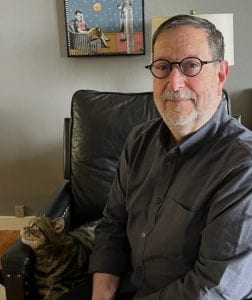Wellness
We offer FREE and CONFIDENTIAL counseling services for individuals and couples and referrals for FREE visits with a community psychiatrist and a learning specialist. We are here to help you manage stress, gain perspective, work through emotional distress, and better care for your overall health and wellness.
Daytime and evening counseling is available Monday through Friday and can be scheduled online at any time. No medical record or bill is generated. Don’t wait for a crisis! Book an appointment if you or your partner is experiencing any of the following:
- Depression, anxiety, trauma, disordered eating and/or other mental health concerns
- Relationship distress or family conflict
- Career doubts, job stress, burnout
- Sleep disturbance
- Perfectionism
- Grief and loss
- Peripartum issues or infertility
- Adverse events (needle stick, traumatic patient outcome, etc.)
- Harassment by a partner or a work colleague
- Conflicts with faculty, attendings, hospital staff or others
About Our Services
Resident and fellow wellness is an institutional priority in graduate medical education. The GME Wellness Service helps trainees and their significant others/spouses cope with common stressors of training. Our goal is to promote work-life integration and overall wellness by advocating for you and providing you with tools to reduce burnout, cope with depression and anxiety and improve the quality of your relationships.
To help you make the most of your precious time off, we produce a weekly newsletter called The Wellness Corner, where we share information about GME Wellness activities and other free, fun, and low-cost events around town. To build community across all of our programs, we sponsor evening and weekend events open to everyone, and occasionally targeted to special interest groups including international trainees, LGBTQ trainees, and trainees who are parents. Popular activities include chocolate factory tours, food events, kayaking, playtime at an indoor gym, art walks, movie nights and our annual Halloween Party. Self-care is encouraged with discounts for massages, facials, and theater tickets.
We also provide customized seminars, workshops and support groups upon request.
Referrals
To help you function at your very best, we can refer you for:
Psychiatric Consultation
The GME Wellness counselors can refer trainees to our community psychiatric provider for a confidential assessment and follow-up appointments, all for FREE. You can renew existing scripts, assess the need for new prescriptions, and get help during a mental health crisis. Our provider is not part of UW Medicine, and is generally available within 48 hours of referral, however you must see one of the wellness counselors first.
Learning Consultation
If you struggle with test taking, time management or other academic challenges, our learning specialist can help. GME will cover the cost of up to 4 hours of private consultation FREE for trainees. Meet with one of the wellness counselors to determine this need.
Community Resources
We can help identify other community resources including PCPs, victim advocates, free yoga and meditation classes, community based therapists, support groups and more.
If you would prefer to meet with a counselor who specializes in an ethnic minority, offers counseling in a language other than English, or incorporates a particular religion into therapy, please consider this local search engine: www.multiculturalcounselors.org. If you would prefer to meet with a counselor who identifies as a sexual or gender minority, and/or specializes in working with issues facing the LGBTQ community, please consider this search engine: ingersollgendercenter.org/ingersoll-directory.
Washington Physicians Health Program (WPHP)
Washington Physicians Health Program (WPHP) is the legally authorized entity in Washington State to provide a therapeutic alternative to discipline if a reasonable concern of potential impairment is present. A referral may be made to WPHP to rule out potential health conditions or to ensure trainees are able to get necessary treatment and support without loss of medical license and without jeopardizing their status as a trainee. When mental health, substance use or other medical conditions are present, trainees are encouraged to self-refer to WPHP who can provide assistance finding appropriate resources and advocacy surrounding program status.
UW Medicine Peer to Peer
Trainees may self-refer to the Peer to Peer Program for work-related stress of any kind. Sometimes it helps to talk with someone who understands first-hand the unique challenges associated with working in healthcare. Peer supporters are medical colleagues who have been trained in supportive listening and emotional support techniques. When a trainee fills out a request form, they will be contacted by a Staff Support Specialist to be matched to a Peer Supporter. These volunteers understand the importance of maintaining confidentiality. The Peer to Peer Program can be used as a stand-alone resource for short-term workplace stressors, or in tandem with counseling sessions. More information and the form to request support can be found on the website: https://faculty.uwmedicine.org/p2p/.
Mental Health and Counseling Resources
UW residents and fellows can are eligible to use the UW Employee Assistance Program CareLink. Services include free access to short term counseling.
Wellness Resources
Promoting a Culture of Well-Being
Communication
- Share concerns as early and directly as possible.
- Be supportive with empathy not sympathy.
- Ask questions and listen actively before jumping in to offer assistance or advice.
- Empathizing, expressing gratitude and asking your colleagues what they need, may not “fix” their problems, but you will have helped create an open and supportive environment where they know they’re not alone
Links
- AMA Course for Physician Leadership on Preventing Distress and Suicide
- CHARM Annotated Bibliography on evidence-based emotional health interventions for physicians in training
- UW Medicine OD&T: free access to a variety of useful resources.
- “Getting It Done: How to Lead When You’re Not in Charge” by Fisher and Sharp
- An Evidence-based, Longitudinal Curriculum for Resident Physician Wellness: The 2017 Resident Wellness Consensus Summit
- Taking Action Against Clinician Burnout: A Systems Approach to Professional Well-Being
- NAM Action Collaborative on Clinician Well-Being and Resilience
- ACGME Tools and Resources for Physician Well-Being
- ACGME AWARE Well-Being Resources – Video Workshop & Podcast
- Healthcare Professional Burnout, Depression and Suicide Prevention
General Wellness and Self-Care
- ACP Individual Physician Well-being and Burnout Tools
- AMA Steps: Appreciative Inquiry
- AMA Steps: Self-care
- Resident Stress Management
- ACGME AWARE Well-Being Resources – App & Podcast
- Mindfulness Myths Deconstructed
- UCLA Mindful Awareness Research Center
- UMASS: Mindfulness in Medicine Videos
- Well-Being Resources for Foreign National Physicians (ECFMG Exchange Visitor Sponsorship Program)
- Wellness, Mental Health and Support Resources for US Veterans
- Eating Well
- Creating an Exercise Plan
Mental Health
- Seeking help when struggling with depression is a sign of strength and courage.
- Physicians are not immune to depression.
- In a 2018 survey of over 15,000 US physicians across 29 specialties, 15% reported having depression symptoms. Of those who reported depression symptoms, 15% indicated they had thoughts of suicide.
- Myths and Stigma prevent physicians from seeking help.
- Despite the 80% success rate of professional treatment for depression, more than 75% of physicians reporting symptoms said they do not plan to seek help.
Depressive disorders are real, treatable illnesses that can affect:
- Decreased energy, fatigue, feeling “slowed down”
- Insomnia, early-morning awakening, or oversleeping
- Low appetite and weight loss or overeating and weight gain
- Persistent physical symptoms that do not respond to treatment, such as headaches, digestive disorders and pain for which no other cause can be diagnosed.
- Persistent sad, anxious or “empty” mood
- Feelings of hopelessness, pessimism
- Feelings of guilt, worthlessness, helplessness
- Thoughts of death or suicide, suicide attempts
- Loss of interest or pleasure in hobbies and activities, including sex
- Difficulty concentrating, remembering, making decisions
- Restlessness, irritability
- Breaking the Culture of Silence
- Physicians, Depression and Burnout
- Healthcare professional burnout, depression and suicide prevention
- Now Matters Now: Skills & Support for Coping with Suicidal Thoughts
- I had a black dog, his name was depression (Video)
- Adventures in Depression
- Mind Over Mood Workbook by Greenberger and Padesky
- The Mindful Way Through Depression by Mark Williams, John Teasdale, Zindel Segal
- Anxiety disorders amongst doctors: the elephant in the room?
- Physicians with anxiety shouldn’t suffer in silence
- The Worry Trick: How Worry Controls You and What You Can Do to Take Back your Life by David A. Carbonell
- Anxiety Mythbuster from ADAA
- Anxiety Coping Strategies from ADAA
- Self-Compassion: Guided Meditation
Burnout
Burnout is more prevalent than we often admit and here are some things you can do about it:
- Share your challenges with trusted colleagues. Burnout thrives in a culture of silence and perfectionism.
- Establish a personal gratitude practice. Regular practice enhances your empathy and combats depersonalization.
- Remember to connect with the things that bring you joy outside of work as well as while practicing medicine.
Four categories of stressors that can drive burnout:
- Practice of clinical medicine: caring for people in distress and managing unpleasant medical outcomes.
- Non-clinical pressures of work: from dealing with the EHR to program politics.
- Stress or quality of life outside of work: do your off-hours recharge or drain you.
- Conditioning of medical education: ingrained attitudes and behaviors required for success.
Burnout is not a disease, but a work-related syndrome with 3 cardinal symptoms:
- Exhaustion: physical and emotional energy levels are low and appear to be in a downward spiral.
- Depersonalization: cynicism, sarcasm and the need to vent about patients to your colleagues.
- Lack of efficacy: doubting the meaning or quality of your work in medicine.
Links
- Mayo Clinic Well-Being Index
- How to beat burnout: 7 signs physicians should know
- AAFP article series on physician burnout (Part 1 of 3)
- ACP Individual Physician Well-being and Burnout Tools
- Prevalence of burnout (Medscape log-in required)
- It’s Not Burnout, It’s Moral Injury (video, strong language)
- Information about recovering from and preventing physician burnout from the AMA Steps Forward program
- Burnout: The Secret to Unlocking the Stress Cycle by Emily Nagoski PhD and Amelia Nagoski DMA
Fatigue
- Nearly all residents experience fatigue.
- Fatigue tricks you into thinking you’re not impaired. Your perception of your degree of impairment becomes less accurate as your sleepiness increases.
- Fatigue is really dangerous, for you and your patients. As your hours of sleep per night decrease, your risk of making serious medical errors and of damaging your metabolic health increases.
Links
- LIFE Curriculum Fatigue Module
- Comparison of 18 different countermeasures for sleepiness and fatigue in (table 11-3)
- 7 Ways to Sleep Better Tonight
- A Grounded Theory Study of Residents’ Decision Making Regarding How to Spend Their Nonclinical Postcall Time
- To sleep or not to sleep: How residents make decisions post-call
- UW Medicine, GME Institutional Work Hours policy
- Letter By Thomas J. Nasca, MD, MACP (CEO of ACGME) on well-being and work hour requirements
- Fatigue Risk Factor Assessment Tool
Substance Use
- Fear, shame and stigma are particularly intense among healthcare professionals struggling with substance-related illnesses and are important barriers to effectively addressing the problem. High-pressure work and access to controlled substances pose additional risks.
- Sharing concerns facilitates your colleagues getting the help they need to recover and maintain their careers.
- You are legally required to report concerns about physicians with potentially impairing conditions.
- Washington Physicians’ Health Program is therapeutic alternative to discipline.
6 I’s of Suspected Substance Abuse
- Irritability
- Mood swings
- Argumentative
- Personality change
- Inability
- Inappropriate orders
- Inadequate charting
- Deviation from standard procedures
- Inaccessibility
- Frequently late/absent
- Prolonged breaks
- Frequent beeper/phone failure
- Irresponsibility
- Shifts workload to others
- Manipulates the schedule
- Hasty rounds
- Isolation
- Volunteers for graveyard
- Rounds at odd hours
- Avoids meetings and social events
- Incidentals
- Eyes: red / puffy / avoiding eye contact
- Skin: bruised / sweating / long sleeves
- Scent: alcohol or heavy masking fragrance
Supporting a colleague or friend dealing with substance use disorder
Nurture your own well-being
- Prioritize self-care: Every other item on this list will be so much easier to do if you make sure your physical, mental, emotional, and spiritual needs are met.
- Set an example of healthy balance: Consider inviting them to join you in an exercise or creative venture. Remember it is their choice whether to accept the invitation.
- Remove yourself from vulnerable situations: If interactions with them put your well-being at risk, use the support you need (friends, counselors, even law enforcement) to get out of the situation.
Support and encourage recovery efforts
- Remain optimistic even in the face of return-to-use: Do this for your sake and theirs. Like other chronic illnesses, substance use disorder may require more than one round of therapy.
- Express your support: Let them know you support them and their recovery. When they’re struggling encourage them to return to their treatment plan.
- Encourage a gradual return to sober life: Completing rehab does not magically solve all the problems. Acknowledge that learning to thrive again is a step-by-step process.
- Recognize that recovery is their battle: You cannot control or fix the situation, so stop trying. To truly get well they need to do the work themselves.
- Hold them accountable: Stand firm in your boundaries and commitment to supporting their treatment and recovery. Don’t excuse behavior or try to absolve their guilt as they confront it.
- Refrain from criticism, shame and blame: These tools won’t give you any more influence over the situation. Once you’ve redirected them to treatment, take a step back and attend to your own emotional needs.
Links
Self-Screening Tools
The following mental health self-screening tools are offered for personal exploration, but they should not be considered an adequate substitute for mental health evaluation. If you would like to discuss your concerns or results further, please schedule an appointment with the GME Wellness Service.
Mindfulness-Based Stress Reduction (MBSR) and Compassion Cultivation
We partner with the Center for Child and Family Well-Being (CCFW). CCFW offers a variety of mindfulness and compassion-based programs that are culturally inclusive and supportive. Here is the link: https://ccfwb.uw.edu/our-focus-areas/cultivating-mindfulness-compassion/
Meditation Rooms
Meditation rooms are available at UWMC, Harborview, VA and Seattle Children’s.
UWMC
- The Reflection Space
Location: L 3100
Located inside the 3rd Floor Surgery Waiting Room, near the Gift Shop and Lobby Espresso between the 3rd Floor Lobby and Surgery Pavilion. Please request Security to open x85555 for after hours access. - Quiet Room
Location: SE 4109
4SE Cascade Elevators. Shared use with family meetings
Harborview
- Location: 4WH-74
Open from 8 am to 8 pm
For after hours access, call Public Safety at 206-744-3193 and ask to have the Meditation Room opened.
VA
All rooms are located in Building 100.
- Basement level
- BB-114 (Eucharist room) Open from 7am-4pm
- BB-108 (Chapel) open 24 hours, but the door is closed and left unlocked after 4pm
- First floor
- 1A104 (Located near the inpatient elevators) It’s open 24 hours
Seattle Children’s Hospital
- The Chapel and Meditation Room is located on level three, River Zone across from the Security desk. The Spiritual Care office is adjacent to the Chapel and Meditation Room. Open 24/7.
Lending Library
When residents and fellows access the free counseling services, they may borrow useful books and other materials on a variety of topics including couples’ communication, time management, grief, perfectionism, mindfulness, managing depression and anxiety, relaxing into restful sleep, etc. from their wellness counselor.

Dipti Chrastka, LMFT
Director, GME Wellness Service
Phone: 206.744.0655
Email: diptic@uw.edu
Location:
HMC
Pat Steel Building, Room 3011
401 Broadway
Seattle, WA 98104
Contact Us

Dipti Chrastka, LMFT
Director, GME Wellness Service
Phone: 206.744.0655
Email: diptic@uw.edu
Location:
HMC
Pat Steel Building, Room 3011
401 Broadway
Seattle, WA 98104


